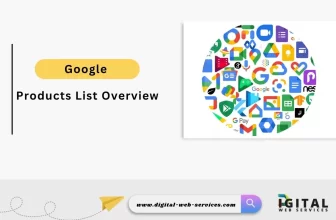
You might have forgotten all about RSS and you’d be forgiven. After all, RSS peaked in the early 00s and since the death of Google Reader, we’ve collectively decided that maybe RSS is not really all that essential.
Not when social media stepped in to serve a similar purpose back when chronological timelines were a staple of Facebook and Twitter, though the landscape has certainly changed over the years. RSS is having a bit of a comeback and any professional can repurpose RSS technology to get the much needed boost at the day job.
RSS can either mean ‘Really Simple Syndication’ or ‘Rich Site Summary’ and serves as a direct notification when a new post is published on a site. We’re used to newsletters performing the same function, but RSS remains a far less invasive reminder. These notifications happen in an RSS feed reader than your work email and give you an easy overview of new content as it’s published. No more having to scroll through long clunky digests.
How to Subscribe for an RSS Feed?
Adding an RSS feed to your reader has become an even simpler process, because most modern readers can locate an RSS feed within their database. If a site has ever been indexed anywhere on the web, it will show up through a simple search.
Inoreader is a prime example of this. All you have to do is copy the URL of a website and paste in the search bar to locate whether it even has an RSS feed. More frequently, site owners do not support RSS anymore so you won’t find a feed at all. Inoreader has you covered with the function to generate a custom feed or you can use RSS.app to do the same.
5 Reasons Why You Should Subscribe
RSS supports office workers through careful automation and customization features. It’s the user who determines how articles and posts come to them rather than the other way around.
You’ll get through the day faster and with far fewer distractions at any given moment. Yes, time is a precious resource, but focus is the precursor to efficient, quality work.
Even site owners benefit from subscribing to their own RSS feeds, because then they’ll be able to tell, if there are errors in the feed formatting or if articles are delivered at all.
1) Define the topics you want to read
RSS readers don’t expect users to perform the heavy lifting in identifying useful sources to their professional or personal interests anymore.
Inoreader certainly believes that true value lies within effortless discoveries away from Google’s algorithms, which work when you know exactly what you’re searching for, but fall short when it comes to suggesting new sources.
As a result, content discovery has climbed to the top of features readers invest in. Inoreader has its own comprehensive Discovery mode centered around pre-determined topics. Other readers follow the same trend – Feedly and Content Studio being other notable examples.
2) Have all favourite social media accounts at one place
In talking about RSS, we mostly discuss articles and news items – the classic understanding of RSS and its capabilities. The past decade has led to innovations in the type of content readers can read and syndicate, and social media platforms have certainly fallen under that umbrella.
Have lost control over your Twitter account? Select specific profiles you want to monitor closely and add them to your RSS reader. You can do the same with industry-specific hashtags as well. You never miss out on the conversation in real time. The information most important to you arrives at a much more manageable pace.
The same principles are applied to YouTube channels, Facebook pages, LinkedIn searches and Instagram accounts and hashtags. Quite useful when you want to perform social media listening.
3) Do not lose your time for content you are not interested in
Another strength to current RSS is the possibility to screen and filter irrelevant content.
Maybe you’re following a specific site to read a single author, but finding them through the sea of other articles grinds on your nerves. Inoreader hands you the tools to filter out all the other white noise and receive updates only on that author’s content.
Another strength is to sort incoming articles based on specific keywords and in those cases where multiple trade publications report on the same developing story, Inoreader consolidates duplicate content. You receive the desired updates, but your home feed looks a lot less cluttered as a result.
4) Easily follow the websites you like
The chief selling point RSS bases its entire marketing strategy as ‘a convenient way to manage all your reading’. Through the filtering we’ve touched upon above, users are much more likely to see the content that truly matters to them. If you’re working in an industry, where you’re required to keep up with news and innovations, RSS reduces this crucial time and labor.
Additionally, RSS readers have improved the overall experience. Inoreader values efficiency and to that end:
- The Inoreader app comes with a set of different themes, so you determine how content is presented to you. At the Basic paid plan, users can also change the overall design through custom CSS;
- Users determine ways to further organize content through folders and tags for visibility;
- Keyword highlights give you extra visual cues to locate important articles.
5) Do not miss a thing
At a certain point in time, we’ve all waited for some big news story to drop.
Perhaps for you it’s the next batch of changes to the Google algorithm. Or maybe you’re waiting for a press release on a highly anticipated product. Or the updates surrounding a scandal or trial. Whatever the reason, nobody can expect you to sit and fresh the front page of Google News every fifteen minutes. At least they shouldn’t.
When the need for such close monitoring arises, turn to the more powerful features Inoreader offers you. Through Rules and integration with other platforms, whether through the basic save function to services like Evernote or Google Drive, or platforms like Zapier, you chain together triggers and actions that not only save the desired article, but also alert you in real time.
Digital Web Services (DWS) is a leading IT company specializing in Software Development, Web Application Development, Website Designing, and Digital Marketing. Here are providing all kinds of services and solutions for the digital transformation of any business and website.










